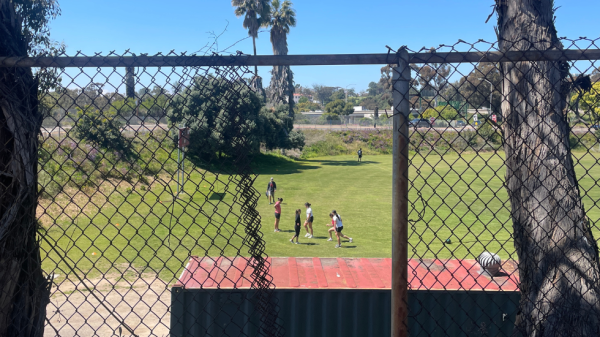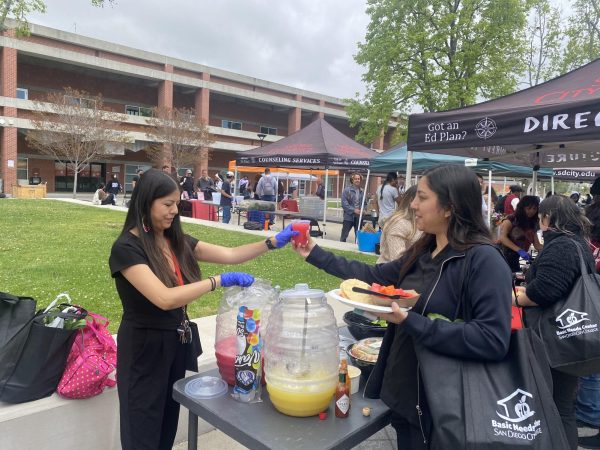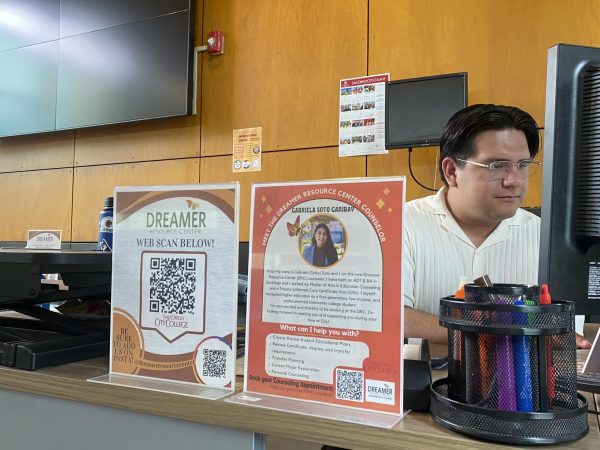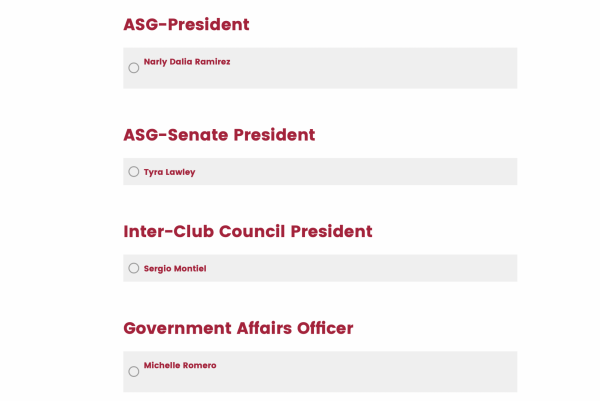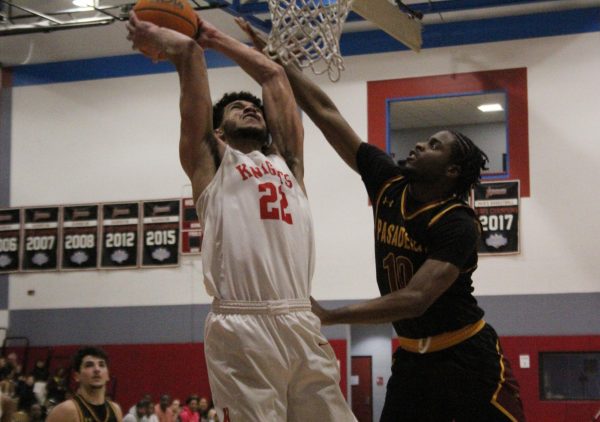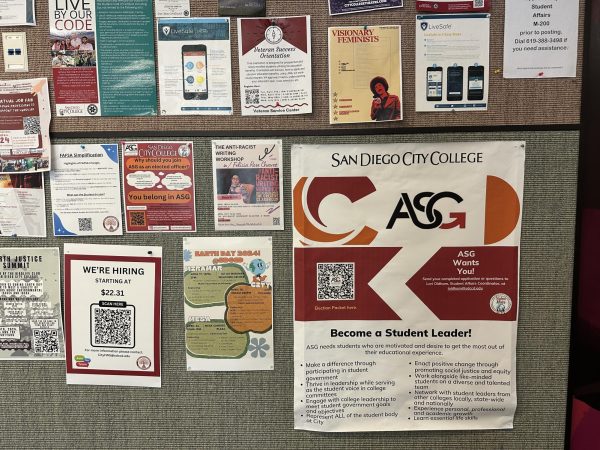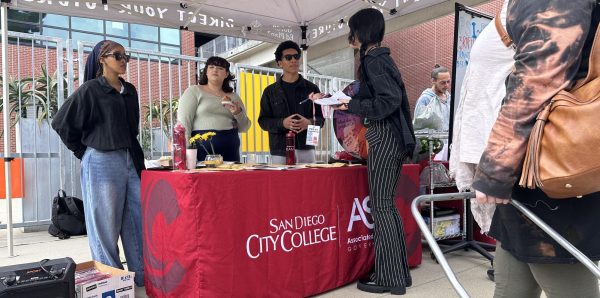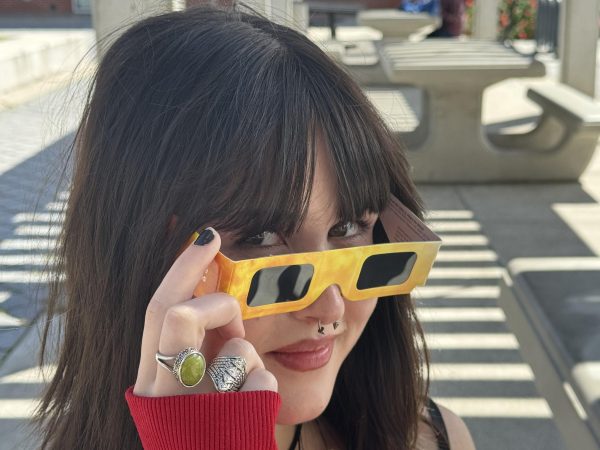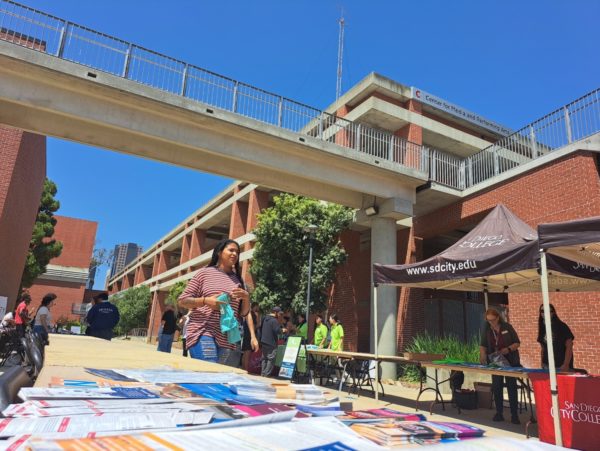Health isn’t just physical
December 8, 2014
The Mental Health Counseling Center engages students on how to stay safe during the Holidays and the five-week break between semesters with peer ambassador presentations in classes, community resources, and 15-minute guided meditation sessions offered Dec. 9 and 11 from 1 to 2 p.m. in MS-221.
“Every once in awhile someone will say, ’Well, I’m not crazy. I don’t need to go there.’ But it’s not about being crazy. Mental health is just as concrete as your physical health,” said Sylvane Vaccarino, 23, psychology major.
Julie Little, project coordinator, confirmed Vaccarino is one of the 15 student peer counselors working as “Mental Health Ambassadors” on campus and sponsored by a state grant, for suicide prevention and mental health stigma reduction.
“Our peer educators are willing to share their stories and open up about how they’ve struggled through things and how they came through it,” Little said.
“It’s always more obvious in hindsight,” Vaccarino said. Despite his experience in being an advocate for suicide prevention, he was shocked when earlier this year one of his close friends took his own life.
“I knew all this stuff intellectually, but it wasn’t until it was personal for me that I was, like, really struck by the confusion of being a close member,” Vaccarino said. He asked himself repeatedly, “What were the warning signs here? How could we not see this coming?”
According to the Mayo Clinic website, symptoms of suicidal thoughts include wishful thinking about life being over. They provide examples such as “I’m going to kill myself” or “I wish I was dead” or “I wish I hadn’t been born.”
Other signs include withdrawing from social contact, feeling trapped, engaging in risk-taking or self-destructive behavior, being preoccupied with death, and a sudden effort to see people and say goodbye.
“They give you a checklist of signs to look for. One day I’m looking at the list, and talking to people about it. Then, when you really know someone, you forget to apply it at home,” Vaccarino said.
“I recommend that people be upfront about it and not be afraid to talk about it. It’s a hard conversation to have, but asking it doesn’t cause it. If I ask someone if they are suicidal, it doesn’t make them suicidal,” said Little.
Vaccarino said he knows how tough it is to talk with someone you care about, “But, I also know that these things can go hidden, bottled up, and can ferment and not be a good thing.”
While it is common knowledge that the holidays are an important time, it can also be a really stressful time for people, in particular, Little said, because their office is closed during the break.
“The holiday stress is really huge for a lot of students,” Little said, “I think holidays never live up to what you want them to be in your mind. Different family dynamics can bring a lot of stress. Then, there’s the financial stress of giving gifts and holiday activities.”
Regina Nolte-Ware, 52, is a peer educator at City who said she got involved with outreach for mental health awareness and suicide prevention after her best friend committed suicide 10 years ago.
“The holidays are the worst,” Nolte-Ware said. “Reach out to us or other groups. Be in a group with peers who can understand what you are going through.”
“Make a plan and get into a routine,” is the best advice Little said she can give. “For a lot of students here, school is what keeps them going, having a routine which keeps you getting up and peer support.”
This semester, the student ambassadors did 35-40 classroom presentations, according to Little, to educate on the signs of depression and suicidal thoughts. They will come into any classroom in which an instructor requests it.
“It’s helped a lot. We hear from students how they are struggling, or how they were affected by people they care about, who are struggling. It generates conversation,” Nolte-Ware said.
Vaccarino believes many people’s attitudes about mental health still carry a stigma.
“Yeah, everybody can be a part of the solution, really,” Vaccarino said. “Just doing the best you can to be a support by listening, at whatever stage they are in.”
“Losing the support structure can feel isolating,” Little said, “but find something — be proactive. Join a bowling league. Whatever it is, commit to it.”
“Best thing is to reach out and find your own mental well-being. Find out what works for you, your own mediation or serenity, something you can enjoy and helps you to be kind of centered,” Vaccarino said.
To make a request for a classroom presentation, call the MHCC office at (619) 388-3539 for more information.
The MHCC office will be closed from Dec. 17 to Jan. 19. On its website, there are links to both community resources and a list of walk-in clinics, along with the Access and Crisis hotline available 24/7 at (888) 724-7240.


